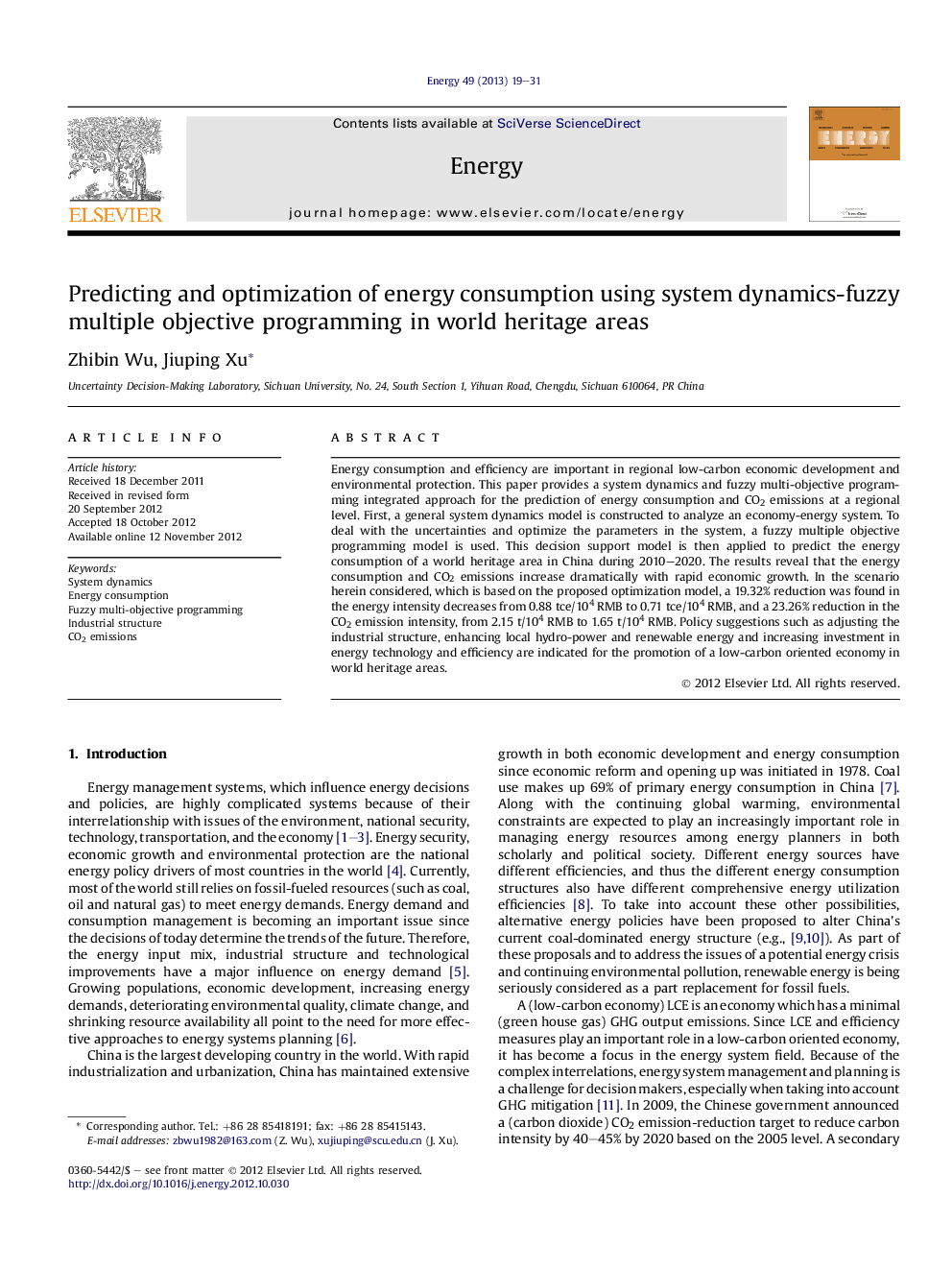| Article ID | Journal | Published Year | Pages | File Type |
|---|---|---|---|---|
| 1733267 | Energy | 2013 | 13 Pages |
Energy consumption and efficiency are important in regional low-carbon economic development and environmental protection. This paper provides a system dynamics and fuzzy multi-objective programming integrated approach for the prediction of energy consumption and CO2 emissions at a regional level. First, a general system dynamics model is constructed to analyze an economy-energy system. To deal with the uncertainties and optimize the parameters in the system, a fuzzy multiple objective programming model is used. This decision support model is then applied to predict the energy consumption of a world heritage area in China during 2010–2020. The results reveal that the energy consumption and CO2 emissions increase dramatically with rapid economic growth. In the scenario herein considered, which is based on the proposed optimization model, a 19.32% reduction was found in the energy intensity decreases from 0.88 tce/104 RMB to 0.71 tce/104 RMB, and a 23.26% reduction in the CO2 emission intensity, from 2.15 t/104 RMB to 1.65 t/104 RMB. Policy suggestions such as adjusting the industrial structure, enhancing local hydro-power and renewable energy and increasing investment in energy technology and efficiency are indicated for the promotion of a low-carbon oriented economy in world heritage areas.
► A general system dynamics model is constructed to analyze an economy-energy system. ► A FMOP approach is presented to optimize the parameters in the system. ► The decision support model is applied to predict the energy consumption of a world heritage area in China. ► Suggestions are given to promote a low-carbon oriented economy in world heritage areas.
